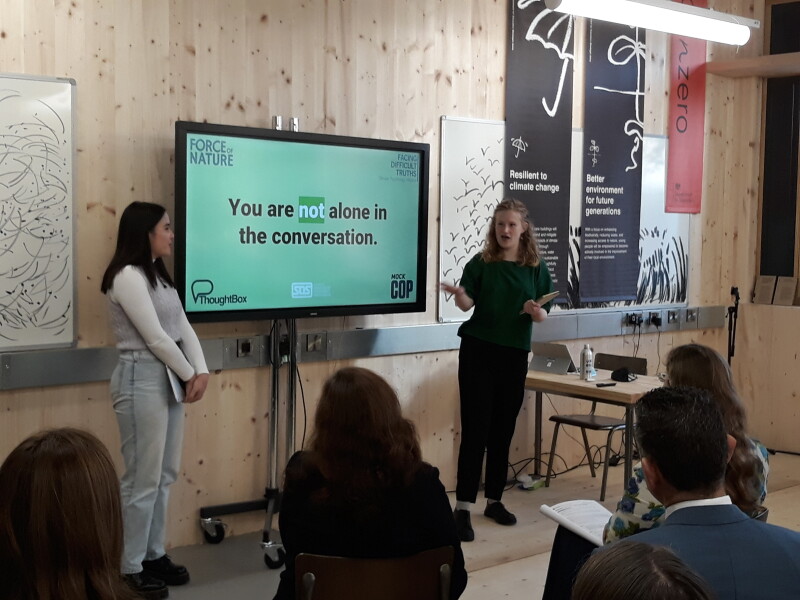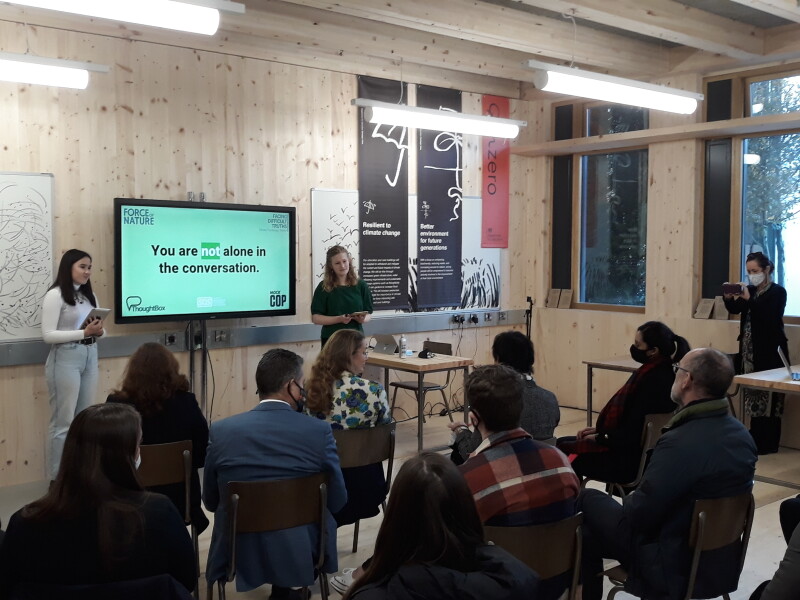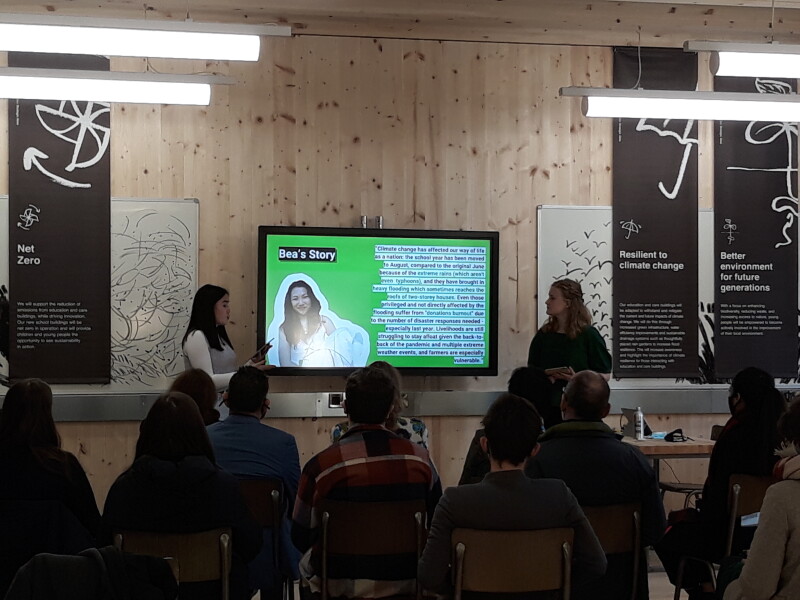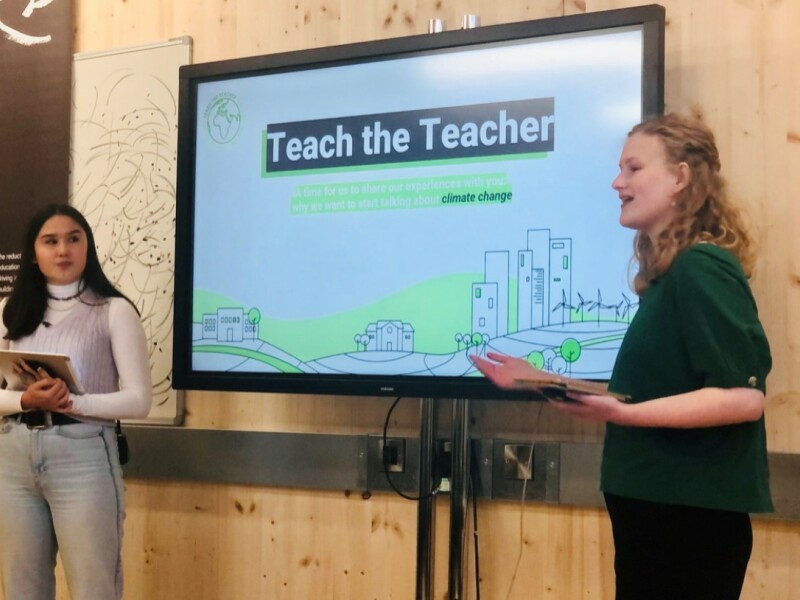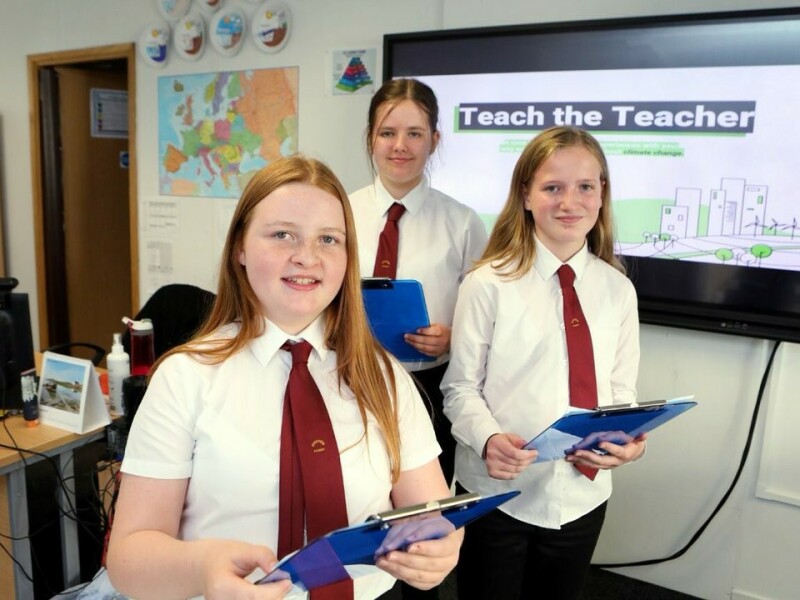Are young people getting a better climate education than you did?

The answer is possibly not...
Student-led education charity, SOS-UK, says the sustainability and climate change curriculum is not yet good enough in secondary schools.
If a pupil doesn’t take geography, they’ll cover it fleetingly as a ‘big problem’ in science, but then move on to a new topic and, SOS-UK says this is leaving some young people in a state of climate anxiety.
Through their student-led 'Teach the Future' campaign, the charity have supported students to engage with the sustainability unit at the DfE and were part of the impetus for its 2022 sustainability strategy but it says more needs to be done on the curriculum and teachers’ professional development.

We’ve been speaking to Mel Kee from SOS-UK who supports their ‘Teach the Future’ campaign which aims to embed sustainability and climate throughout the secondary curriculum. She tells us how you can get your school or trust involved.
Mel, firstly please can you tell us a bit more about the charity and what you do?
SOS-UK is a student-led campaigning charity focusing on sustainability and we mostly work across secondary schools, colleges and universities. We have three key missions:
1. Getting students to lead on learning about sustainability
2. Embedding sustainability into formal education
3. Making sustainability more inclusive, so it’s for everyone.
These are the three areas of our work and they shape the type of programmes and campaigns that we run.
‘Teach the Future’ is one of our flagship campaigns which aims to repurpose the national curriculum so sustainability and climate change are fully embedded within it. The campaign runs across England, Wales, Scotland and Northern Ireland.
You don't study equality as a separate subject or learn about it within a single subject like geography. You're taught everything in a fair and equal way. We think you should be taught about sustainability within technology or modern languages or English literature and this kind of learning needs to be moved into the mainstream.
Who came up with the idea for ‘Teach the Future’ and what does it involve?
The project started with some disgruntled A-level pupils who’d just been through the education system and didn’t feel they’d received an adequate, solution-centred climate education.
Where climate change features in the curriculum, it’s not often up to date and can give mixed messages. Quite a few of the young people we’ve spoken to said they were taught to articulate the pros and the cons of climate change, such as farmers being able to grow higher value crops like grapes in southwest England. But given where we are right now, it’s ridiculous that this kind of simplistic, inaccurate teaching is still going on.
You don't study equality as a separate subject or learn about it within a single subject like geography. You're taught everything in a fair and equal way. We think you should be taught about sustainability within technology or modern languages or English literature and this kind of learning needs to be moved into the mainstream.
One of the students behind the project was A Level student Jodie, whose chemistry teacher was openly a climate change denier. Frustrated, Jodie spoke to her headteacher and asked if she could host a lunchtime session on what it’s like to be a young person in the climate emergency and why we need integrated, high-quality climate education.The session was really successful and we helped to get Jodie to COP 26 in Glasgow (the UN Climate Change Conference) to run that session for senior officials at the Department of Education, at the US Embassy and others. It’s now been scaled up and the ‘Teach the Teacher’ project, which governing boards can get involved in, is set to be delivered to 200 schools a year with external funding, from OVO Foundation and the I Will Fund, and Jodie’s still involved.
How can a school or trust get involved if they’re interested?
We're actually in the process of recruiting secondary schools in the UK. All we need is an interested teacher or headteacher or some interested pupils - so it's a good time for governors or trustees to raise this at their next meeting.
How does the project work?
We run online training for students which allows them to host ‘Teach the Teacher’ sessions, in groups of 3, for staff and governors at the school. These either run over an inset day, after school or even over a couple of lunch times.
The sessions are structured so the pupils talk about climate change and the science behind it, the importance of climate education and what teachers can do to embed climate change into the curriculum. They also talk about young people’s experience of climate change and the kind of climate anxiety they might be feeling, leading to the need for action
The idea is that this session then encourages teachers and leaders to think about how they embed that within their own work and own teaching.
We understand there are a lot of competing priorities in schools and there's no stipulation that a teacher or headteacher has to do anything after attending the session, but it’s very powerful to hear the young person's view and learn about what they’d like to see change.
We’ve run a lot of the pilot sessions internationally and we run a follow up survey with some of the students asking about the impact of the project. We found many of them report back that their teachers are now embedding climate education within their area of the curriculum.
For us, one of the really big impacts is that it empowers the students to do something about climate change within their own school. It’s a relatively low barrier of entry to taking action - they work with their peers within their own school and present to their own teachers. But it’s tangible action that can have an impact. They’re starting that conversation within their school, pushing from the grassroots up and having an effect on those decisions at the top about integrating sustainability.
At SOS-UK, we are essentially the support crew behind the young people and we bring the ideas and the energy to help them make their projects a success.
What other work are you doing with schools?
We’re also running another project around the climate action plans which all schools are required to have in place by 2025. We’re going to be working with 12 schools in six coastal regions of England to develop student-led, ambitious climate action plans which cover everything in the Department for Education’s strategy, so that’s education, resilience, carbon reduction and operations. These will form useful case studies to be shared amongst the sector, encouraging schools to develop their own progressive climate action plans.
We’re also working with 12 schools from the same regions on a rewilding scheme for their school grounds, which is called ‘30% Now for Nature’, and involves schools wilding 30% of their grounds. This is a pathfinder or set of case studies for the DfE’s nature park plans.
The Department for Education is very supportive of this pathfinder work that we're doing to the extent that they might actually delay putting out some guidance on the climate action plans until we’ve completed this work.
Read SOS-UK's full response to the DfE sustainability and climate change strategy


